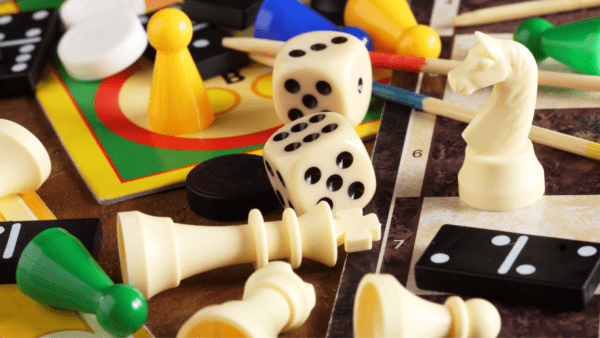The Ultimate Guide to Finding the Best Family Board Games

The best family board games are accessible to various ages and can engage all types of learning skills. These include strategic thinking, reading, math skills, scanning, matching, and memory.
Several classics such as Cranium, Articulate, and Scrabble never seem out of style. Other options include Ticket to Ride, a fun train-themed game that’s competitive but not overly so.
Ticket to Ride
There’s something special about getting your whole family around a table for board games after dinner or on a day off. These are when everyone needs a break from screens and other demands, and playing a great match together can help keep everyone happy and relaxed.
In addition, fun family board games are a fantastic way to unite everyone, fostering laughter, bonding, and friendly competition during quality time at home.
Whether you’re a train fan or not, Ticket to Ride is one of the best family board games that will please everyone. The simple rules, low-key nature, and appeal to players of all ages make it the perfect gateway game that will have you all returning for more.
Plenty of different versions of the game, including the Ticket to Ride First Journey edition that introduces younger players to train travel with a more straightforward map and simplified rules. Likewise, the Ticket to Ride: Europe + Old West edition adds physical bullet trains and new route cards that expand your options in this broad railway theme.
Cranium
If you’re new to the hobby or need inspiration for family game nights, this Ultimate Guide is helpful. We’ve covered you, from beginner-friendly board games to more complex tabletop experiences.
Whether you’re winding down after Christmas dinner, squeezing in some screen-free fun on a lazy Sunday, or simply trying to make the most of an unexpected rainy day, family board games can be a great way to spend time together. Not only are they an excellent opportunity to bond, but studies have shown that playing games can help kids build critical thinking skills, develop patience, and learn how to win and lose gracefully. And, with a wide range of options to choose from, like Ticket to Ride, a tremendous train-themed building game, or Photosynthesis, an ecology-inspired strategy that comes with a colorblind-friendly design, there’s sure to be a family-friendly board game for everyone.
Magic Maze
Whether you’re trying to calm down before bed or get the kids off the screens, a good board game is one of the best ways to bring everyone together. Family games “teach children to work as a team, negotiate, follow rules, and use spatial reasoning and logic,” says the former school behavior specialist and author.
For a fast-paced game that tests visual agility and memory, Q-bitz is an ideal choice. Each player gets a set of 16 challenge cubes and a wooden tray. A puzzle card is flipped, and players race to recreate the pattern using their cubes.
If your family enjoys Disney villains, this Labyrinth-themed game will be a hit. This cooperative game uses the original maze board, but instead of players playing as characters from Labyrinth, they play as different Disney villains.
Herd Mentality
Whether you’re trying to fit in a round between dinner and bedtime or facing a rainy day full of screen time, there’s always an opportunity for a family game night. And the best part is that playing board games helps kids develop social and cognitive skills, like turn-taking and patience.
In the game Herd Mentality, players write down their answers on a card (such as “What’s your favorite pizza topping?”) and hope that their response matches that of most others in the room. If they are correct, they win a cow token. But if their answer is the only one different, they get saddled with a Pink Cow and can only win once they pass it to someone else.
Psychologists cite herd behavior as a possible explanation for mass panic and confusion during disasters like fires. It is also described as mob mentality or groupthink and is the opposite of individual decision-making or introspection.
Wingspan
I have never indulged in many Stonemaier Games releases because they tend to come with hefty expectations and price tags. The premium linen-finished cards, pastel egg minis, and molded component trays have an almost tactile appeal.
In this game, players compete with each other (or with the automa in solo play) to build the most attractive aviary – represented by a player’s board split into three rows of habitats – woodland, grassland, and marsh. Each bird card has a different cost, power, placement restriction, victory point ratio, and aviary building implication.
Each turn, a player chooses one of four actions and pays food tokens on their board to indicate what they have done. This may include placing a bird card into a habitat, caching food, or even laying eggs if the row on their board dictates it. Thoughtful strategy bubbles beneath the surface, and the end-of-round goals make some exciting choices.
Similar Posts:
- None Found







